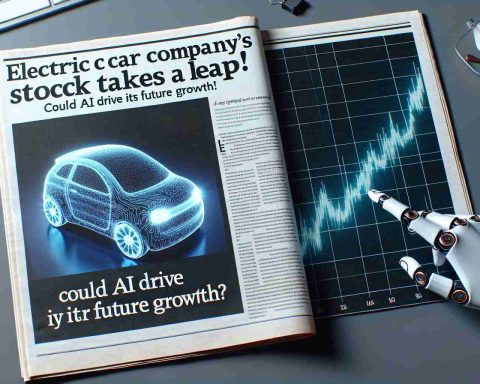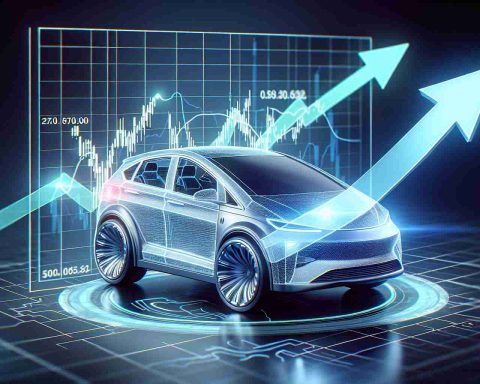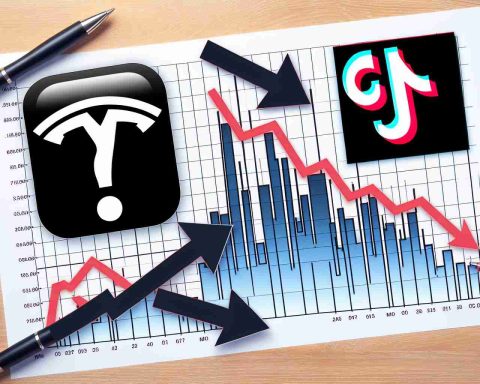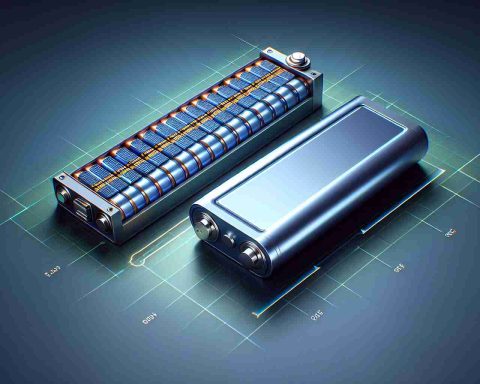An Unexpected Setback for Tesla
In a surprising turn of events, Tesla has announced a significant recall that has raised safety concerns among electric vehicle enthusiasts and owners alike. The company, known for its innovative approach and contributions to sustainable technology, recently discovered a defect affecting 239,000 cars in the U.S.
This recall is primarily due to a malfunction linked to the rear camera, which may lead to operational failures when the vehicle is powered on. The issue appears to stem from a short circuit in the vehicle’s computer system. The impacted models include the Model 3, Model S, and Model X from recent production runs. Fortunately, the company has emphasized that no injuries, accidents, or fatalities have been reported as a result of this defect.
Additional scrutiny comes from the National Highway Traffic Safety Administration (NHTSA), which has launched a separate investigation into 2.5 million Tesla vehicles regarding potential issues tied to its controversial self-driving features. This marks a notable moment for the manufacturer, as it navigates customer trust amidst these developments.
Tesla is responding promptly by implementing a software update to rectify the rear camera problem and ensure safety measures are in place. As electric vehicles continue to dominate discussions on innovation and sustainability, this incident serves as a reminder of the industry’s inherent risks and the vital importance of vigilant quality control.
An Unexpected Setback for Tesla
Tesla, a leader in electric vehicle (EV) production and sustainable technology, has unveiled a recall that has sent ripples through the automotive community. Affected by a significant safety concern, the announcement affects 239,000 cars in the United States, specifically models like the Model 3, Model S, and Model X produced recently. This recall, resulting from malfunctions in the rear camera linked to a short circuit in the vehicle’s computer system, highlights both the potential complications of advanced technology and the responsibility that manufacturers bear for consumer safety.
While there have been no reported injuries or accidents related to this defect, the recall raises important questions about the intersection of technological innovation and safety. As Tesla prepares to deploy a software update to address the issue, the National Highway Traffic Safety Administration (NHTSA) has also begun an investigation into the broader implications of Tesla’s self-driving features across 2.5 million vehicles.
Impact on Environment and Humanity
The implications of this recall extend beyond immediate safety concerns. Electric vehicles are often hailed as a cleaner alternative to traditional gasoline-powered cars, significantly reducing carbon emissions and contributing positively to the environment. However, the very technologies that enable this sustainability—such as complex computer systems and software driving autonomous features—also introduce new risks that could undermine public trust in EVs.
Should consumer confidence wane in the wake of safety recalls, it could lead to reduced adoption rates of electric vehicles. This would ultimately hinder efforts to combat climate change, as transportation is one of the largest contributors to greenhouse gas emissions globally. If the public perceives electric vehicles as unreliable, they may be less likely to transition away from fossil fuel-powered vehicles, stalling progress toward a more sustainable future.
Economic Connections
On an economic level, this incident could have ripple effects through the supply chain. Tesla’s reputation as a pioneer in the EV space makes its actions a bellwether for the entire industry. A decline in consumer trust might not only impact sales but also influence investor confidence, potentially affecting stock prices and market trends.
Moreover, this recall can open discussions about the broader implications for innovation in the automotive sector. Should EV manufacturers prioritize safety over rapid technological deployment? Failure to maintain rigorous quality control can hamper progress, leading to increased regulatory scrutiny and possibly stifling the innovative spirit that drives advancements in sustainable technology.
Future of Humanity
As we look towards the future, the connection between innovative transportation solutions and their safety becomes increasingly critical. Humanity stands at a crossroads: we can embrace electric vehicles as a fundamental step toward reducing our carbon footprint, but we must also ensure they are safe, reliable, and well-regulated.
In addressing these challenges, the industry has an opportunity to lead by example, creating a framework for responsible technological advancement that prioritizes both innovation and consumer safety. By learning from setbacks like this recall, manufacturers can refine their practices, boost public trust, and ultimately contribute to a more sustainable and secure future for all.
In conclusion, while Tesla’s recall is an unexpected setback, it serves as an essential reminder of the delicate balance between innovation and safety. As humanity strives toward greener solutions, it is imperative that technological advancements are coupled with rigorous safety measures to support a sustainable future.
Tesla’s Recall: What Owners Need to Know and What’s Next for Electric Vehicles
Overview of Tesla’s Recent Recall
Tesla has announced a considerable recall affecting 239,000 vehicles in the U.S., raising safety concerns among electric vehicle users. The recall is primarily due to a defect in the rear camera system, which may cause operational failures when the vehicle is powered on. Models affected include the Model 3, Model S, and Model X from recent production runs.
Features and Specifications
– Models Impacted: Model 3, Model S, Model X
– Defect: Rear camera malfunction due to a short circuit in the vehicle’s computer system
– Number of Vehicles Affected: 239,000 in the U.S.
How Tesla is Addressing the Issue
In response to the identified defect, Tesla is rolling out a software update that aims to fix the rear camera issues for affected vehicles. This update is crucial for maintaining Tesla’s reputation for safety and technological innovation.
Pros and Cons of Tesla’s Approach
# Pros:
– Quick Response: Tesla is taking swift action by issuing a software update, minimizing potential danger to drivers.
– Focus on Safety: The company has prioritized safety communication by openly discussing the recall and its implications.
# Cons:
– Customer Trust: Frequent recalls can affect the trust consumers have in Tesla’s reliability and quality assurance processes.
– Ongoing Investigations: The separate investigation by the National Highway Traffic Safety Administration (NHTSA) into potential issues with Tesla’s self-driving features could further complicate consumer perceptions.
Current Trends in Electric Vehicle Safety
The Tesla recall highlights wider trends in the electric vehicle market focusing on advanced technology and safety features. As manufacturers integrate more complex systems, especially related to autonomous driving, the importance of stringent quality control measures becomes critical.
Insights and Future Predictions
– The increase in electric vehicle ownership raises questions about the reliability of tech-heavy vehicles. This incident with Tesla serves as an opportunity for the industry to enhance safety standards and technological controls.
– In the long term, these events may lead to stricter regulations around autonomous features and recalls within the electric vehicle sector as consumer expectations shift towards reliability and safety.
FAQs About Tesla’s Recent Recall
1. What should Tesla owners do if their car is recalled?
Owners should check the official Tesla website or contact their local Tesla service center for instructions on the recall and software update.
2. Is it safe to drive my Tesla if it is affected by this recall?
Since no injuries or accidents have been reported, it is currently safe to drive; however, Tesla recommends following the updates and instructions provided.
3. How will this recall affect Tesla’s stock and market standing?
While short-term impacts may result from these safety concerns, long-term market analysis suggests that robust handling of the situation can help restore investor confidence.
For more information about Tesla and their latest updates, visit the official Tesla website at Tesla.



















